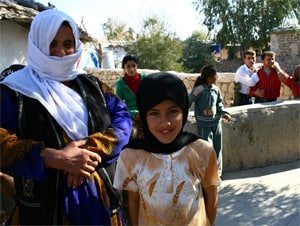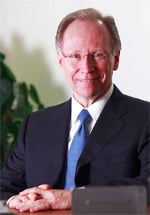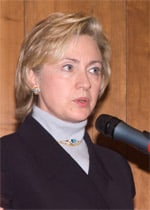SHIFTING SANDS
By Gordon Platt
Extraordinary changes are occurring in the Middle East in the aftermath of the Arab Spring uprisings. New economic models—and new opportunities for foreign investors—are developing. But the potential for great reward comes with great risk.
 |
|
Photo Credit: HOMEROS / SHUTTERSTOCK.COM |
The Arab Spring uprisings and the withdrawal of US troops from Iraq have left behind a volatile mix of factions vying for power in the Middle East and North Africa. Until the violence subsides and political stability returns, it will be difficult for those countries affected to attract long-term investment. But Egypt, the most populous country in the Arab world, and Iraq, with its huge oil resources, could offer some of the most promising opportunities for investors willing to make long-term commitments.
Egypt’s Muslim Brotherhood, the country’s oldest and long-outlawed Islamist group, has, over the years, created a social welfare organization that helps the most needy members of society. Now that the Brotherhood’s Freedom and Justice Party has won control of the Egyptian parliament, the question is whether it can rescue an economy in crisis and avoid steep devaluation of the Egyptian pound by limiting subsidies and promoting growth. The party says it will accept aid from the International Monetary Fund, as long as it comes with no strings attached.
 |
|
Bourland, Jadwa Investment: The emergence of Iraqi production and the shift to new sources—including the US, Brazil and Canada—will be increasingly important to oil prices |
Another unknown is whether—or perhaps how quickly—the Brotherhood will move to create an Islamic economy and replace interest-paying institutions. Any change is expected to be gradual and cautious, analysts say. The party has, for example, announced that it will not interfere with the industrial zones jointly managed by Egypt and Israel. What happens in Egypt could influence economies and policies in Libya, Tunisia, Iraq and elsewhere in the region.
Investors from the Arab Gulf will take their time exploring opportunities in Egypt, says Brad Bourland, chief economist and MD of proprietary investment at Jadwa Investment in Riyadh. There has been a strong anti-private-sector backlash since the revolution, and there are lingering effects from the unrest, he says.
“It will take time for a strong, welcoming environment to emerge in Egypt,” Bourland says. “After all, the stock market was closed for three months [last year], and it will take years to restore confidence.” Egypt’s main stock market index fell by nearly half last year, making it one of the worst-performing markets in the world.
Egypt’s first presidential election since the resignation of Hosni Mubarak will begin in May, according to the electoral commission. The first round will be held May 23–24, with a run-off June 16–17. The ruling military council has said it will turn over power to a civilian government following the election.
OIL & GAS GIANTS
In neighboring Libya, the militias that helped topple Muammar al-Qadhafi are now engaged in rivalries that are dividing the country and challenging central authority. The oil-rich country is restoring hydrocarbon production, but the threat of a civil war looms ahead of planned elections in May or June.
Iraq, meanwhile, has improved the terms under which it will auction off 12 oil and gas exploration blocks on May 30–31. The oil ministry had postponed the auction several times to encourage more firms to participate. The country is sitting on an estimated 143 billion barrels of proven oil reserves, according to the World Bank.
“Transitions can be derailed and detoured to new autocracies”
– Hillary Clinton, US secretary of state
The introduction of new sanctions against Iran has added further uncertainty to oil-market prospects, according to a report by the economics department at Samba Financial Group, in Riyadh. “Prices have continued to firm in response, despite weakening demand, as markets worry about supply disruptions,” the report notes.
The Iranian economy has come under pressure, and domestic politics have become strained, making responses hard to predict, the bank says. “That said, closing the Strait [of Hormuz] seems unlikely and, for now at least, both Teheran and Washington seem eager to avoid precipitating a military conflict,” according to the report. The key question, it adds, is whether Iran will be able to find alternative buyers for its crude.
Fundamental factors will be much more important to the course of oil prices this year than will speculation about the effect of Western sanctions on Iran’s oil revenues, says Bourland of Jadwa Investment. “The emergence of Iraqi production and the shift to sources in the Western Hemisphere, including the US, Brazil and Canada, as well as Russia, will be more significant,” he says.
Saudi Arabia has been producing crude at the high rate of nearly 10 million barrels per day and likely will cut back this year, Bourland says. Non-oil growth in the kingdom will accelerate, centered on housing and construction. The transportation, telecom and retail sectors of the economy are all strong, Bourland says. In addition, the Saudi ministry of commerce has banned cement exports to make more of the product available to the domestic market and asked factories to produce at full capacity to meet local demand.
DIVERSIFYING FOREIGN INVESTMENT
Foreign investment in the MENA region needs to diversify away from the oil and gas industries and toward areas that have a greater impact on boosting jobs, according to a joint study by the World Economic Forum and the Organization for Economic Cooperation and Development (OECD). Despite a decade-long surge of foreign direct investment to the region, high and persistent unemployment is endemic, especially among the young, whose jobless rate exceeds 40% in some countries, the report says.
An underdeveloped private sector and a widespread mismatch between workforce skills and business needs are two key reasons for the high unemployment rate, it adds. “Economic reform must accompany political transition if the root causes of the Arab Spring protests are to be addressed and jobs created for the 2.8 million young people who enter the labor market every year,” the study notes.
“It will take time for a strong and welcoming environment to emerge in Egypt. After all, the stock market was closed for three months [last year], and it will take years to restore confidence”
– Brad Bourland, Jadwa Investment
In addition, private sector growth is stifled by an unwelcoming business environment, according to the World Economic Forum and OECD. Foreign direct investment flows have fallen recently as a result of the ongoing global economic crisis and the impact of the Arab Spring on investors’ confidence. “The Arab Spring has led to significant turbulence in the region, which has had negative effects on the economic performance of countries in the short term,” the report says. “This is likely to persist in the medium term as well, depending on the success and direction of political reform. However, the political changes under way and the recognition of the key role of the private sector in generating jobs and growth may drive the needed political momentum to enhance competitiveness over the medium to longer term,” it adds.
BRINGING ARAB SPRING REVOLTS TO FRUITION
Hillary Clinton, US secretary of state, during a speech in Tunisia in late February, warned: “Transitions can be derailed and detoured to new autocracies.” She urged young people who fought in the uprisings to keep up the pressure on their leaders to stay on the path of liberalization and openness and fulfill the promise of the Arab Spring. Tunisia was the first Arab nation to topple a long-term dictator in the uprisings, with the ousting of Zine El Abidine Ben Ali in January 2011.
 |
|
Hillary Clinton, US secretary of state: Tunisia has a chance to demonstrate to the world that Islamist politics can be compatible with democracy Photo Credit: TRINACRIA PHOTO / SHUTTERSTOCK.COM |
“There are those who question whether Islamist politics can really be compatible with democracy,” Clinton said. “Well, Tunisia has a chance to answer that question affirmatively and to demonstrate that there is no contradiction.”
Clinton said the Islamists and other parties must learn to govern together and uphold respect for the rule of law. The Islamists seek to create societies based on shariah law. Clinton was in Tunisia to attend a meeting of countries supporting the opposition to Syrian president Bashar al-Assad. Meanwhile, the fighting between Syrian regulars and the Free Syrian Army continues.
Earlier this year in Kuwait—a member of the Gulf Cooperation Council (GCC)—opposition groups including Islamists and tribal leaders gained control of the country’s parliament, in the process taking the seats of all four then-sitting female parliamentarians.
The country now faces heightened political gridlock that threatens to stall its development program. Kuwait’s emir, sheikh Sabah Al-Ahmad Al-Jaber Al-Sabah, called the election after opposition lawmakers demanded to question the prime minister about an alleged payoff scandal.
Although GCC countries have used oil money to buy stability, they have not been immune to the uprisings. In Bahrain pro-democracy demonstrations were put down last year by a Saudi-backed crackdown. The economy has suffered amid a lack of political progress. Tourism has declined sharply, and several banks have relocated operations to Dubai.




